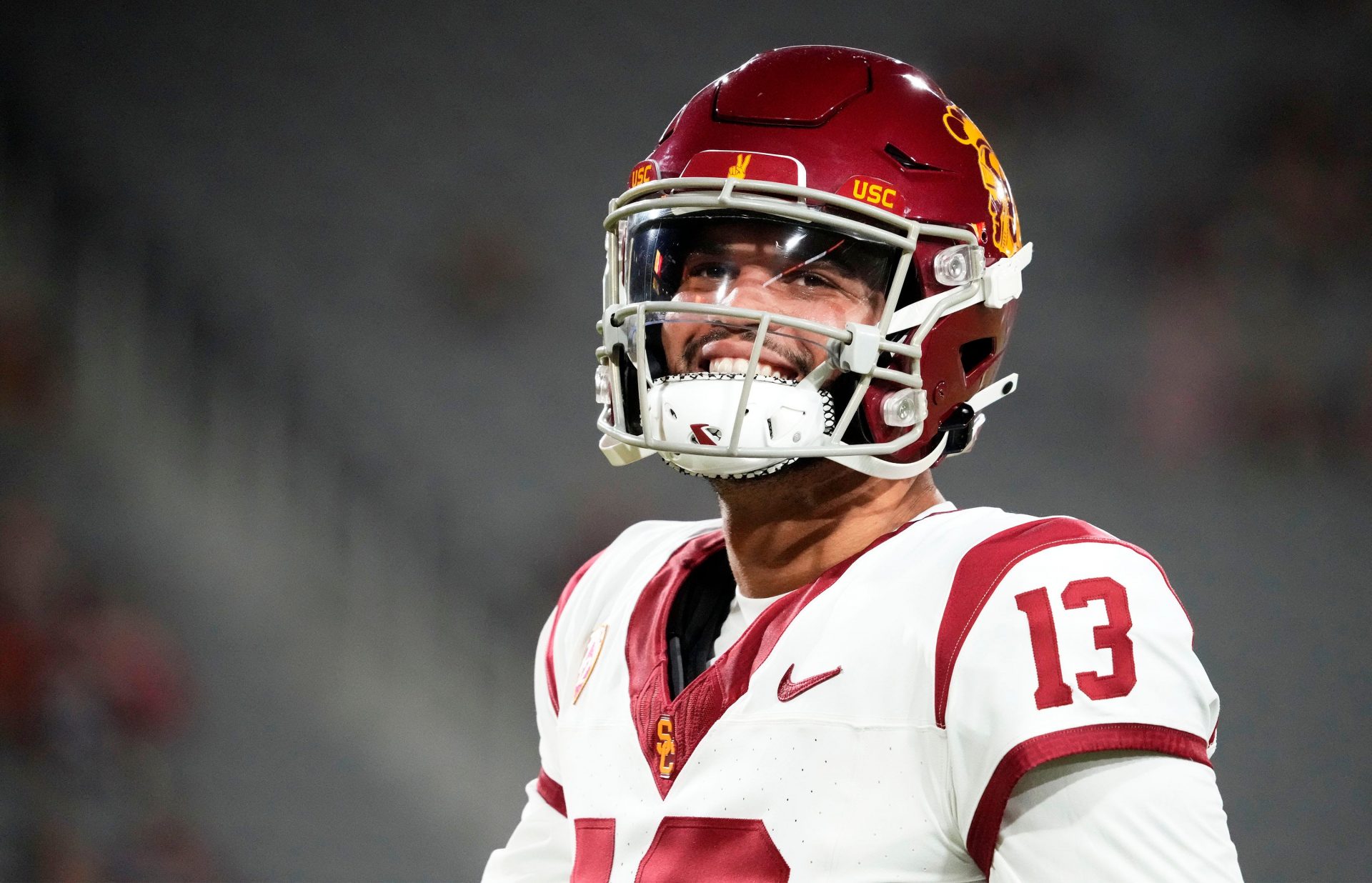Once upon a time, the eventual Heisman Trophy winner and No. 1 overall draft pick started his college career in Norman, Oklahoma. Before Caleb Williams went on to star for the Chicago Bears in the NFL, he made a career-altering decision to head west.
What led Williams to transfer colleges after just one season with Oklahoma ultimately paved the way to his meteoric rise and success at both levels.


Caleb Williams Transfer to USC Vaults His Platform
It could be said that Caleb Williams simply transferred from the Oklahoma Sooners to the USC Trojans to follow his head coach, Lincoln Riley. And if you were to say that, you would be accurate.
Williams followed his head coach out west and the rest is history. But that’s not the only reason.
In fact, Williams’ entire college journey could now be seen as a massive NFL tryout or interview. Williams had been pegged as the potential No. 1 overall pick and a Heisman candidate even before stepping foot on campus in Norman.
And the first glances of Williams carving up the Texas defense in the Red River Rivalry Game in 2021 only fueled that fire.
But then Riley took the job at USC.
Yes, Williams followed Riley, it’s as plain and simple as that sometimes. But it’s also a bit more.
Williams went to Norman to play for Riley and to put himself on the map of NFL Draft scouts and the growing lineage of top-pick quarterbacks to put on the Sooners uniform. Without Riley as the head coach, however, the likelihood of that continuing dwindled.
As such, Williams jettisoned the Crimson and Cream for Trojan Gold. He won the Heisman Trophy in his first season with USC as the continuity with Riley clearly paid off.
Despite a 7-5 finish with USC in his second season at the helm, Williams was eventually selected with the first overall pick and is now guiding the Bears in the NFC North.
Williams did indeed follow Riley, but it was more of a business decision than it was a decision to simply follow a head coach. And that’s why Williams transferred and that’s why Williams was the No. 1 overall pick.
College Football Network has you covered with the latest from the ACC, Big Ten, Big 12, SEC, and every Group of Five conference and FBS Independent program.

